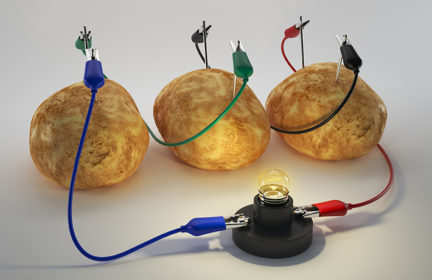An interesting take on offgridding at its most harsh and basic
https://www.bbc.co.uk/news/uk-scotland-59174870
For almost 40 years Ken Smith has shunned conventional life and lived without electricity or running water in a hand-made log cabin on the banks of a remote loch in the Scottish Highlands.
“It’s a nice life,” says Ken. “Everybody wishes they could do it but nobody ever does.”
Not everyone would agree that Ken’s isolated, reclusive lifestyle of foraging and fishing as well as collecting firewood and washing his clothes in an old bath outdoors is the ideal. And even less so at the age of 74.
His log cabin is a two-hour walk from the nearest road on the edge of Rannoch Moor, by Loch Treig.
“It’s known as the lonely loch,” he says. “There’s no road here but they used to live here before they built the dam.”
Looking down on the loch from hillside, he says: “All their ruins are down there. The score now is one and that’s me.”
Filmmaker Lizzie McKenzie first made contact with Ken nine years ago and over the past two years she has filmed him for the BBC Scotland documentary The Hermit of Treig.
Ken, who is originally from Derbyshire, tells the programme how he began work at the age of 15, building fire stations.
But his life changed at the age of 26 when he was beaten up by a gang of thugs after a night out.
He suffered a brain haemorrhage and lost consciousness for 23 days.
“They said I would never recover. They said I would never speak again,” he says.
“They said I would never walk again but I did.
“That’s when I decided I would never live on anyone’s terms but my own,” he says.
Ken began to travel and became interested in the idea of the wilderness.
In the Yukon, the Canadian territory that borders Alaska, he wondered what would happen if he just walked off the highway and “went into nowhere”.
So that’s what he did, saying he finally walked about 22,000 miles before returning home.
While he was away his parents died and he didn’t find out until he came home.
“It took a long while to hit me,” he says. “I felt nothing.”
Ken walked the length of Britain and was at Rannoch in the Scottish Highlands when he suddenly thought of his parents and started to cry.
“I cried all the way while walking,” he says.
“I thought where is the most isolated place in Britain?” Ken tells the documentary.”I went around and followed every bay and every Ben where there wasn’t a house built.
“Hundreds and hundreds of miles of nothingness. I looked across the loch and saw this woodland.”
He knew he had found the place he wanted to stay.
Ken says that was the point when he stopped crying and ended his constant wandering.
He set about building a log cabin, having first experimented on the design by using small sticks.
Four decades on, the cabin has a roaring log fire but no electricity, gas or running water – and definitely no mobile phone signal.
The firewood has to be chopped in the forest and carried back to the remote shelter.
He grows vegetables and forages for berries but his main source of food comes from the loch.
“If you want to learn how to live an independent life what you have to do is learn how to fish,” he says.
Ten days after film director Lizzie left the cabin, in February 2019, the perils of Ken’s isolated existence were brought home when he suffered a stroke while outside in the snow.
He used a GPS personal locator beacon, which he had been given days before, to trigger an SOS, which was automatically sent to a response centre in Houston, Texas.
It notified the coastguard in the UK and Ken was airlifted to hospital in Fort William where he spent seven weeks recovering.
Staff did what they could to make sure he could return to living independently and doctors tried to get him to move back to civilisation where he would have a flat and carers. But Ken just wanted to get back to his cabin.
However, the “double vision” he suffered after his stroke and his memory loss mean Ken has had to accept more help than he’d had previously.
The head stalker of the estate, who looks after the forest where Ken lives, has been bringing him food every couple of weeks, which he pays for from his pension.
“People these days have been very good to me,” Ken says.
A year after his first rescue, Ken had to be airlifted again after he was injured when a log pile collapsed on him.
But he says he is not worried about his future.
“We weren’t put on earth forever,” Ken says.
“I’ll stop here until my final days come, definitely.”
“I have had lots of incidents but I seem to have survived them all.
“I am bound to go ill again sometime. Something will happen to me that will take me away one day as it does for everybody else.
“But I’m hoping I’ll get to 102.”
-
Comments (3)
-
